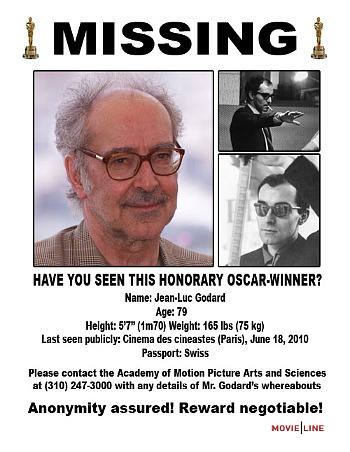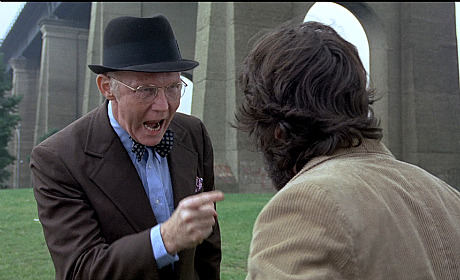Yesterday The Oregonian‘s Mike Russell published a James Cameron interview in which the Avatar director revealed that a version running 16 minutes longer that the original theatrical cut — including a whole new opening on a polluted, befouled and Blade Runner-ish earth — will be sold in an Avatar box set out in November.
The extended 3D Avatar opening in theatres today is eight and 1/2 minutes longer than the version that opened last December.
Russell: I’ve read the Avatar screenplay that Fox posted online around Oscar season, and I’ll admit the thing I want to see re-inserted into the film are the opening scenes set on the polluted, dystopian Earth — the shots of lead character Jake in a sports bar — the polluted, crowded cityscapes. You shot this sequence, correct? Any chance we’ll be seeing that?
Cameron: Well, if you buy the box set in November, you can sit down, and in a continuous screening of the film, watch it with the Earth opening.
Q: Oh, really?
A: Yeah. It works very well. It just takes a long time to get the movie started. You have to be sort of predisposed to like the movie like a fan, you know what I mean? And then you can sit and you can have a great ride — a different telling of Avatar. Not inconsistent — it’s just the stuff that happened off-camera.
We call it ‘the Earth opening.’ It’s about 4 1/2 minutes of stuff. And it was in for the longest time. It was very late in the day that we took it out. I walked in one day and said to my two editors, ‘Guys, I want each of you to cut a new version of the start of the film, Reel 1, that doesn’t have any Earth in it at all.’ And they looked at me like I was out of my mind. And I said, ‘No — it’s gonna work.’ They had to figure out the details. I said, ‘Just grab a couple of things to use as flashbacks, and start it in space when Jake opens his eyes.’
Q: So wait – does [today’s] re-release start on Earth?
A: No. The re-release opening [today] starts the same way. But in November, you can buy a box set with all the bells and whistles. Plus it’s got like 45 minutes of unfinished deleted scenes that exist in a supplement where you can just play the scenes individually.
“But it’s all a big negotiation with the studios; how much money do they want to spend on these sort of revisionist versions of the movie? Because on the whole Earth opening, the visual effects weren’t done, and we had to go back and spend a million bucks or whatever to get those shots done. So there’s a price-tag dangling from anything that gets re-inserted.
“It’s not like Apocalypse Now, where they blow up a Vietnamese village and the footage is done – there are no visual effects after the fact. We’ve got to go back, and it’s our time and our energy and the studio’s money to re-create this stuff.
“But (in November) you’ll be able to watch a 16-minute-longer version of the film that’s a nice, flowing, cohesive version of the movie. If you just want to wallow in Avatar for three hours, I can get that for you.”




